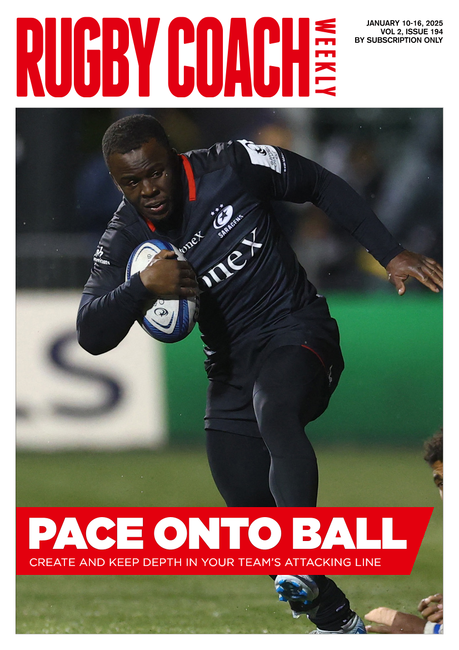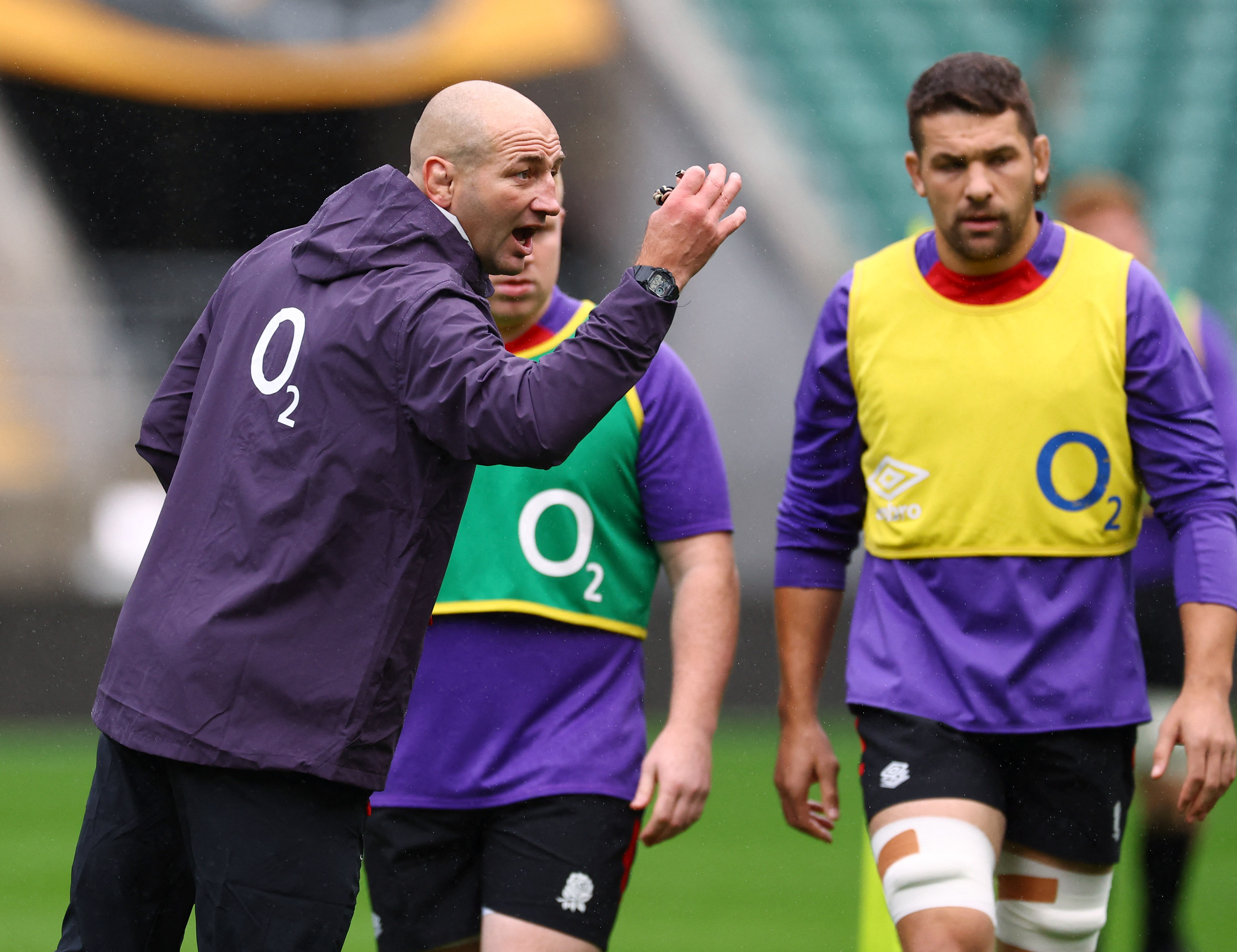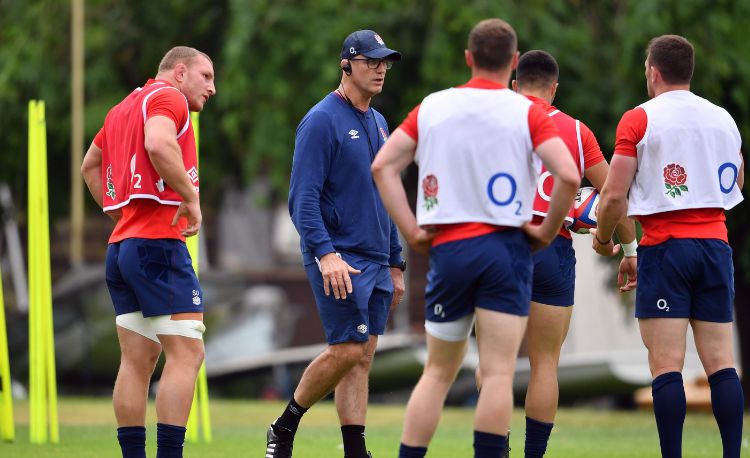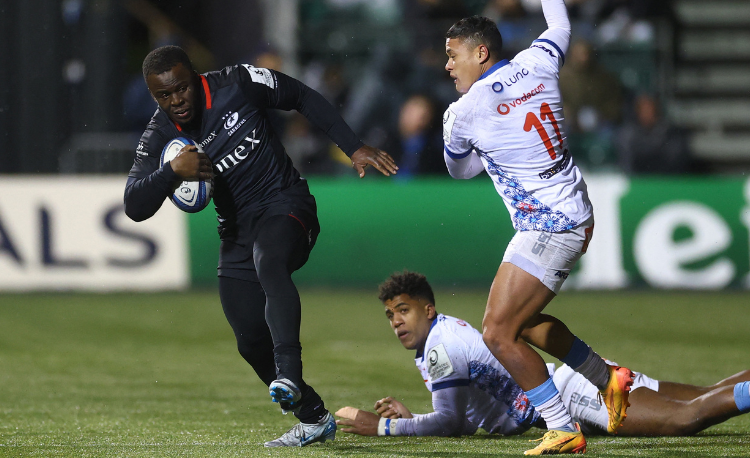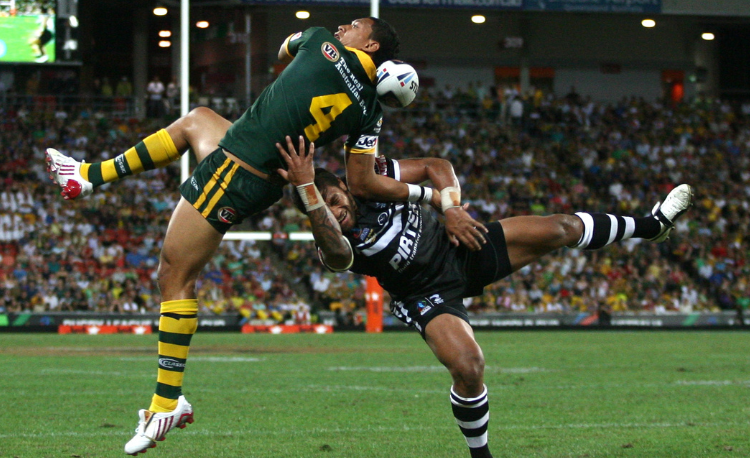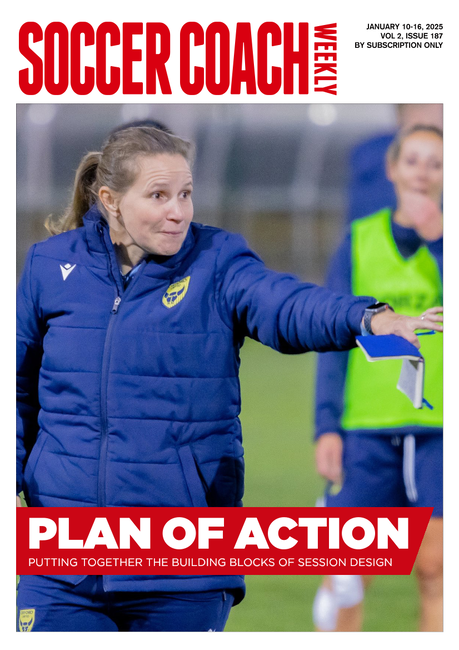Follow the rule of three to structure your coaching
Not sure how to structure your team’s coaching? Use our simple model to plan your sessions, execute your game plans and review your matches. It’s as easy as one, two, three…

Writers, speechmakers and even the US Marines have long understood the magic of “threes”. Shakespeare wrote of “Friends, Romans, countrymen” in Julius Caesar while Thomas Jefferson referred to “life, liberty and the pursuit of happiness” in America’s Declaration of Independence. And the US Marines state that any soldier should limit their aims to just three goals.
Here’s our “rule of three” to help you motivate, improve and win with your team:
Every session should be split into three elements: individual, units and team. Each player should work on improving a current skill or learning a new one. Your units, which usually split into backs and forwards but can just as easily be the kick-off or counter-attack unit, should develop cohesion and tactical acumen.
Finally, everything should be tied together. That could be a team run or simply a game for all the players.
Within each activity, again think in threes: set the scene, do the activity, develop the activity. In your feedback, reassure the player (what they did well), ask for possible improvements and set out the plan to go forward.
Rugby is played out in three ways: attack, defence and set piece. So your game plan needs to address how you’ll use the ball, how to get it back and how to claim/retain possession from a restart.
If you put those three things on the board before a game and ask players to tell you what the plan is, that’s enough to start with.
You could split the field in four, and map out what might happen where and when.
Post-match analysis helps us decide if we’re on the right lines with training and selection. Use the rule of three to focus on parts of the game. In particular:

Sir Clive Woodward

Writers, speechmakers and even the US Marines have long understood the magic of “threes”. Shakespeare wrote of “Friends, Romans, countrymen” in Julius Caesar while Thomas Jefferson referred to “life, liberty and the pursuit of happiness” in America’s Declaration of Independence. And the US Marines state that any soldier should limit their aims to just three goals.
Here’s our “rule of three” to help you motivate, improve and win with your team:
ONE: Plan your sessions
Every session should be split into three elements: individual, units and team. Each player should work on improving a current skill or learning a new one. Your units, which usually split into backs and forwards but can just as easily be the kick-off or counter-attack unit, should develop cohesion and tactical acumen.
Finally, everything should be tied together. That could be a team run or simply a game for all the players.
Within each activity, again think in threes: set the scene, do the activity, develop the activity. In your feedback, reassure the player (what they did well), ask for possible improvements and set out the plan to go forward.
TWO: Execute your game plans
Rugby is played out in three ways: attack, defence and set piece. So your game plan needs to address how you’ll use the ball, how to get it back and how to claim/retain possession from a restart.
If you put those three things on the board before a game and ask players to tell you what the plan is, that’s enough to start with.
You could split the field in four, and map out what might happen where and when.
THREE: Review your matches
Post-match analysis helps us decide if we’re on the right lines with training and selection. Use the rule of three to focus on parts of the game. In particular:
- First, think of what your aims were going into the match – what specific elements you’d hoped to improve on. It might be front-on tackles, quicker ruck ball or the lineout. Forget the scoreline, just pick three specifics and score those out of three. Score three if it went well, two if it was normal, and one if it was below par.
- Second, pick out one element that was disappointing which wasn’t part of your original aims. Just one.
- Third, praise the players for scoring a three. Develop further activities for those areas that stayed the same. Review your approach for anything scoring a one.
Three of the best from Sir Clive…
THINK Correctly
- Training fun, games enjoyable
- Doing things differently
- Building success
PLAN Get Organised
- Commitment
- Help in key areas
- Support structures
DO Coach the basics
- Tackling
- Scrummaging
- Passing

Sir Clive Woodward
Newsletter Sign Up
Coaches Testimonials

Gerald Kearney, Downtown Las Vegas Soccer Club

Paul Butler, Florida, USA

Rick Shields, Springboro, USA

Tony Green, Pierrefonds Titans, Quebec, Canada
Subscribe Today
Be a more effective, more successful rugby coach
In a recent survey 89% of subscribers said Rugby Coach Weekly makes them more confident, 91% said Rugby Coach Weekly makes them a more effective coach and 93% said Rugby Coach Weekly makes them more inspired.
Get Weekly Inspiration
All the latest techniques and approaches
Rugby Coach Weekly offers proven and easy to use rugby drills, coaching sessions, practice plans, small-sided games, warm-ups, training tips and advice.
We've been at the cutting edge of rugby coaching since we launched in 2005, creating resources for the grassroots youth coach, following best practice from around the world and insights from the professional game.


